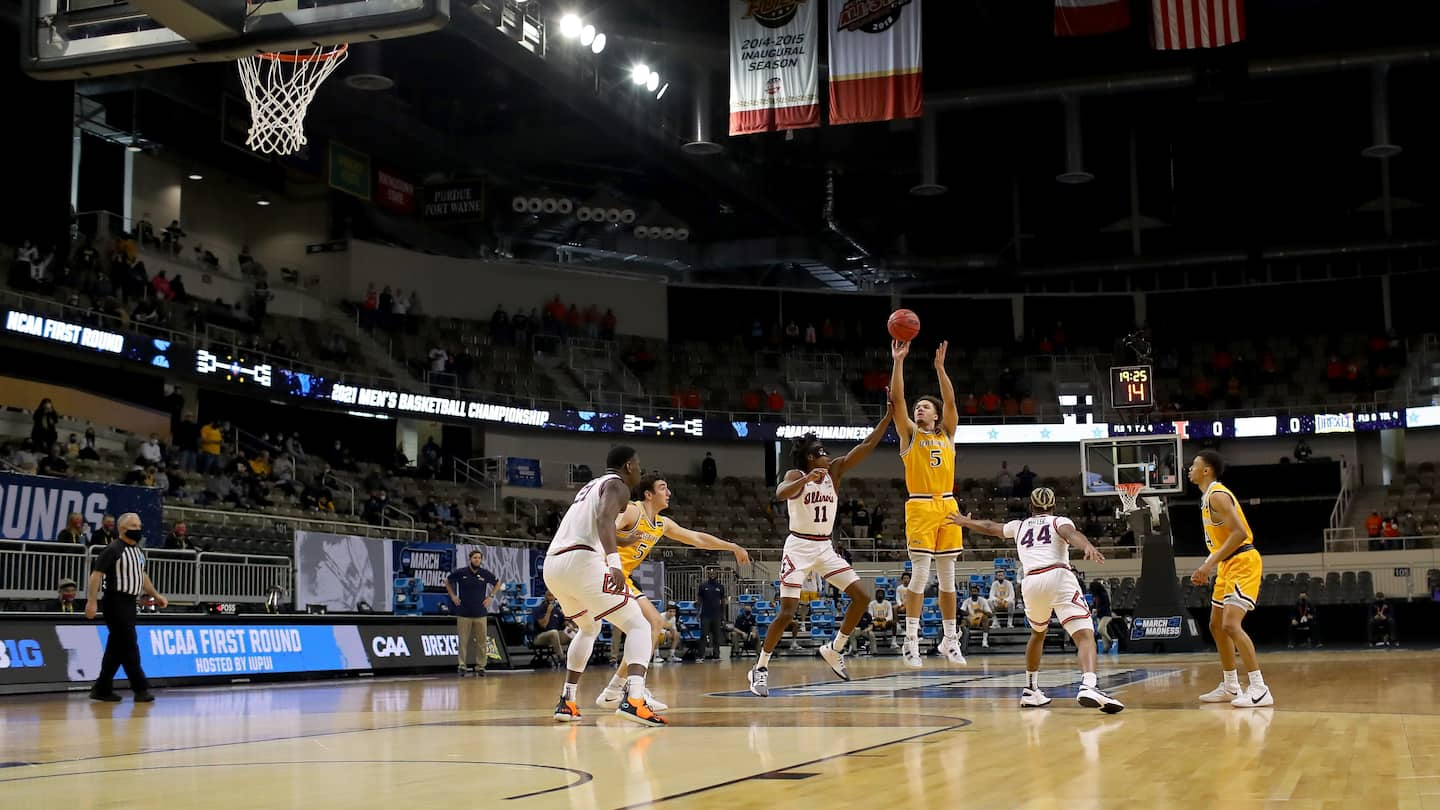Bad news for the NCAA and its March Madness scam: The ‘amateurs’ are onto them

In normal times, it’s almost — almost — enough to make you forget what the tournament actually is: a month-long, multibillion-dollar television series that makes money for everyone but the players who produce the show.
This weekend, with the men’s tournament confined to venues in and around Indianapolis because of the coronavirus pandemic, that reality is laid bare. Yes, there are scant, physically distanced crowds at some games. Absolutely, the potential for more buzzer-beating madness awaits. And if the quasi-bubble the NCAA created allows the 68 teams to stage 67 games without a squad being sent home because of an infection, then a legitimate champion will be crowned. A year after the entire event was wiped out, that’s not nothing.
But this year’s tournament, more than any other, should be viewed with a raised eyebrow. Coaches can rightly be thrilled with the opportunity to compete for a championship, but there is an awakening inside their locker rooms that the terms of competition are decidedly unfair. Not between teams, but between the players and everyone else.
“The NCAA OWNS my name image and likeness,” Rutgers guard Geo Baker tweeted before the tournament. “Someone on music scholarship can profit from an album. Someone on academic scholarship can have a tutor service. For [people] who say ‘an athletic scholarship is enough.’ Anything less than equal rights is never enough. I am #NotNCAAProperty.”
That hashtag — #NotNCAAProperty — gained momentum in the days leading up to the tournament. The players, they’re going to be heard. Change is going to come. Push back on that? Hear Baker out in a subsequent tweet.
“The argument is simple,” he wrote, because it is. “We deserve an opportunity to create money from our name, image and likeness. If you don’t agree with that statement, then you are saying that you believe that I, a human being, should be owned by something else.”
He is so, so right.
Steve Pikiell, Baker’s coach at Rutgers, makes $1.6 million annually. The players he oversees cannot sign a jersey and sell it. Neither fact is Pikiell’s fault, because that’s what the market pays him and what the rules deem is fair for his players. But think about the ridiculous limits those players face. They cannot go back to their hometowns in the summer and run a basketball camp to teach other kids. They can’t accept a meal from an alum, make videos for social media that might earn them money.
They are pawns, and this college basketball season — played in fits and starts, when players were asked to isolate themselves so they could produce the games television needed to fill airtime and fulfill contracts — showed it plainly.
Coaches, too, are catching on.
More truth. The NCAA is by any measure a business, a business that continues to use “amateurism” as some sort of cloak to hide behind. The problem now: The “amateurs” are onto them.
“The NCAA has used the word amateurism to remain one of the most exploitative industries in the entire country,” Ohio State forward Seth Towns tweeted.
The truth keeps flowing. Follow along.
“As a walk-on, I pay full tuition each year and yet even I can not profit off of my OWN name, image and likeness,” Rutgers’s Luke Nathan wrote. “The NCAA’s rules do not allow me to even start my own basketball camp in my own hometown.”
Drop someone in from another planet, take them to one of the games in Indianapolis this month, and lay out the situation: See those two guys stalking the sidelines and yelling at the officials? They each make more than $2 million. That silver-haired suit in the stands? Yeah, that’s Mark Emmert, the NCAA head, who earned — sorry, made — $2.7 million in 2018, the most recent year tax documents are available. According to the database at Non Profit Light, nine other NCAA execs make salaries of at least $500,000. Those signs advertising Coca-Cola? (That’s a drink we enjoy here on Earth.) Yeah, they’re one of the NCAA’s “Corporate Champions.” No, they didn’t win anything. It just means they help pay the $19.6 billion CBS and Turner Sports agreed to pay the NCAA to broadcast the tournament from 2011 to 2032.
Whoa, what a shot! What? Oh, the kid who made it? Yeah, he’s here in Indianapolis for more than three weeks because his team keeps advancing. He gets lunch and then heads back to his room to kill time. Maybe he studies? I’m not sure. Yes, he is really, really good. Oh, how much does he make off all the YouTube replays of his highlights? Nothing.
It’s inconceivable.
Here’s hoping next March arrives without a Twitter campaign by the athletes and without another version of this column. There is proposed federal legislation that would provide a national framework for allowing athletes to market themselves, to make money off their own abilities rather than merely for the machine they’re powering. On the last day of March, the Supreme Court is set to hear an appeal of a lower-court ruling that the NCAA’s eligibility rules are a violation of antitrust law. That’s more important than any of the games this month.
A pivot is coming. But until it does, watch these games with the right amount of skepticism. The celebratory, communal feel of the tournament has been stripped away by the coronavirus. What remains is the naked exploitation of the athletes, there for a national television audience to see.






